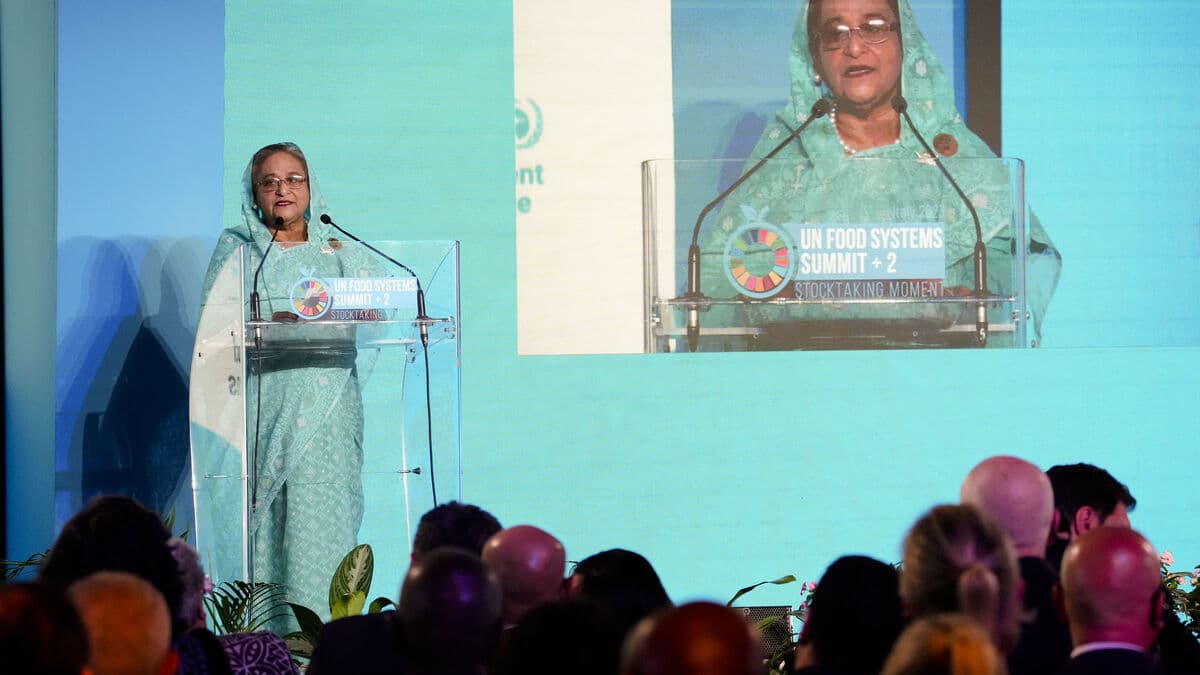"All . . . elements that stipulate crimes against humanity have been fulfilled," said Judge Golam Mortuza Mozumder in a live broadcast from the courtroom in Dhaka.
The former prime minister is convicted on three counts, including sedition, ordering the murders and failing to prevent the atrocities.
"We have decided to give her only one sentence – the death penalty," the judge says.
According to the verdict, the death penalty shall be carried out by hanging.
Shortly after the announcement, Bangladesh requested that India extradite both Sheikh Hasina and former Home Minister Asaduzzaman Khan Kamal, who has also been sentenced to death.
Signs of torture
Sheikh Hasina, now 78, was ousted in a popular uprising in August last year. The bloody protests against her rule lasted for weeks, during which hundreds of people were killed and even more injured.
According to the UN, as many as 1,400 people may have been killed. UN human rights chief Volker Türk sounded the alarm earlier this year that investigators had found signs of extrajudicial executions, widespread arbitrary arrests and torture of protesters. However, the vast majority of those killed were shot dead by security forces, according to Türk.
The then Bangladesh government, led by Sheikh Hasina, is said to have been aware of the actions and gave the green light.
Dismisses the court
The demonstrations were primarily about dissatisfaction with a quota system for public sector jobs that was seen as favoring supporters of Hasina's party. The protests were also about corruption and a lack of democracy.
Sheikh Hasina, who had been in power for 15 years when she was ousted and fled to India in August last year, now lives in New Delhi, where she has dismissed the special tribunal that tried her as “politically motivated” and “a sham court.”
Peace Prize laureate Muhammad Yunus took over as interim leader after her flight. The country will hold elections in February next year.






